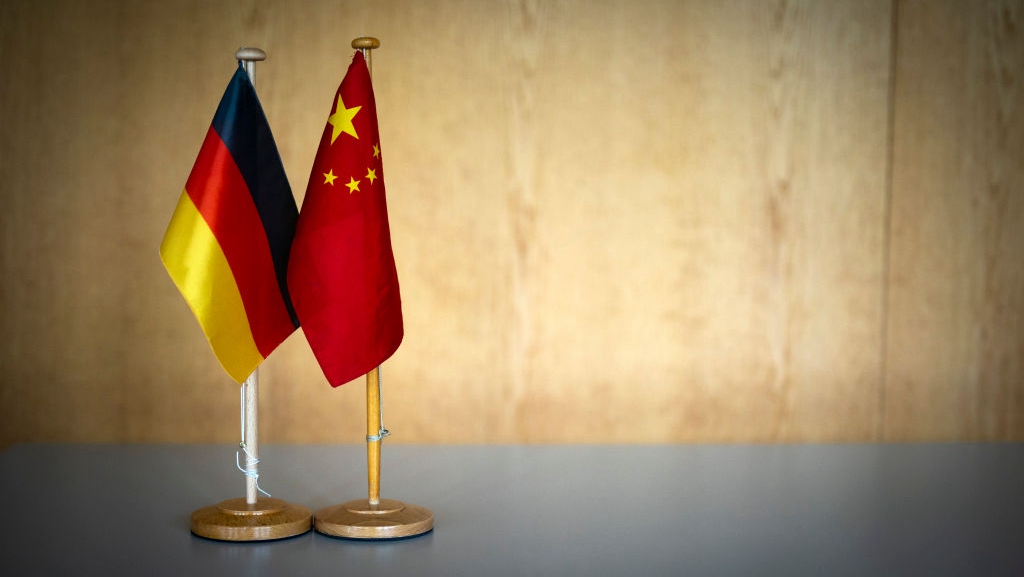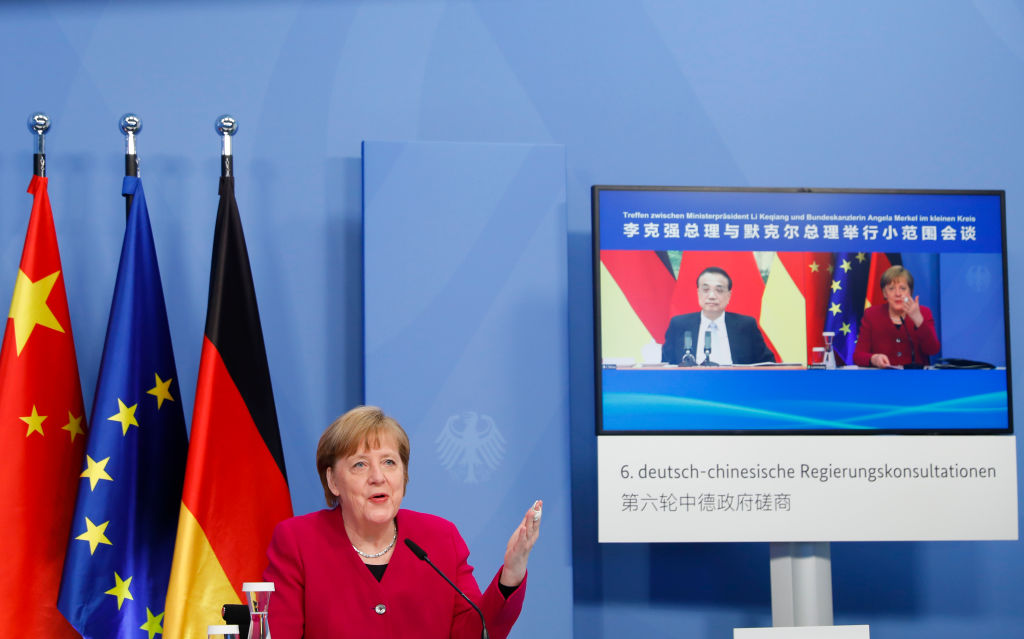
Editor's note: Jonathan Arnott is a former member of the European Parliament. The article reflects the author's opinions and not necessarily the views of CGTN.
Politics is the "art of the possible," according to the famous saying by the 19th-century German leader who was the nation's first chancellor. More than a century has passed since then, and yet those words remain as true as ever.
In an imperfect world, nobody can ever hope that complex intergovernmental discussions will ever result in a perfect outcome for either side. Negotiation, diplomacy and compromise are the order of the day.
There are bumps in the road ahead for China's relationship with Germany. Germany's long-time chancellor, Angela Merkel, has a problem. That problem is the growth of the German Green Party, with an election looming in September.
The German Green Party has always been a relatively minor political force, one with modest but significant political representation in the Bundestag. Recent opinion polls, however, have shown it challenging for first place: a Bild poll showed them in the lead.
To achieve their surge in popularity, they have moderated their hard-left factions and attempted to appeal to a wider section of the German electorate.
Merkel is a veteran of many election campaigns. Whilst she will not be the Christian Democratic Union's (CDU) figurehead in September (Armin Laschet will be the CDU's flag bearer), every action she takes with under five months to go will be with one eye on the election. When it comes to relations with China, she is aware that the German Green Party has taken the most hardline stance of any German party.
They use phrases such as "China's authoritarian pursuit of hegemony," and Norbert Rottgen, chairman of the Foreign Affairs Committee, recently commented that - like it or not - "the Greens have the clearest stance of all the parties on China and Russia."
Merkel is therefore cautious. Instinctively, she wants to promote trade with China. However, she is also aware of the current German political landscape. This provides an explanation of the reasons for the unusual political tap-dancing after her recent online summit with Chinese Premier Li Keqiang.

German Chancellor Angela Merkel attends virtual talks with Chinese Premier Li Keqiang as part of the Sixth German-Chinese Government Consultations in Berlin, Germany, April 28, 2021. /Getty
German Chancellor Angela Merkel attends virtual talks with Chinese Premier Li Keqiang as part of the Sixth German-Chinese Government Consultations in Berlin, Germany, April 28, 2021. /Getty
Germany drew attention to human rights issues, but Merkel did so in terms which indicated that she did not wish to provoke a confrontation with China. A phrase such as "I would hope that we could also get the human rights dialogue going again as soon as possible" says nothing, and - as ever in politics - the absence of anything more concrete speaks volumes.
Likewise, Li's reference to "equal treatment and non-interference in each other's internal affairs" is absolutely crystal-clear, however much is shrouded in polite diplomatic language.
Caution, to me, seems to be the order of the day on both sides. There are areas where China and Germany can cooperate, and both nations are very much keen to do so. China is understandably keen to retain good relations with a traditional ally within the European Union.
On the other hand, both sides have their red lines. Merkel does not wish to hand the Greens a propaganda victory, and feels the need to be careful. Conversely, China is keen not to be seen to bend to international pressure. It is fiercely aware of issues around its national sovereignty and wishes to take domestic decisions on its own terms.
Once again we are back to the political tap-dancing: China is keen, not least for public relations reasons, to make progress on human rights issues. It is equally keen to assert its sovereignty and ensure that it does so on its own terms, rather than bend to international pressure.
Such issues will not be resolved in a bilateral summit between China and Germany, so the diplomatic language continues.
The two nations will continue to cooperate where they can. China is Germany's biggest trading partner and critical to its rollout of renewable energy. On trade, climate change and the fight against the pandemic, cooperation between the two nations will continue and perhaps even be strengthened - though there will doubtless be a period of uncertainty following German elections later this year.
Politics, after all, is the art of the possible.
(If you want to contribute and have specific expertise, please contact us at opinions@cgtn.com.)

